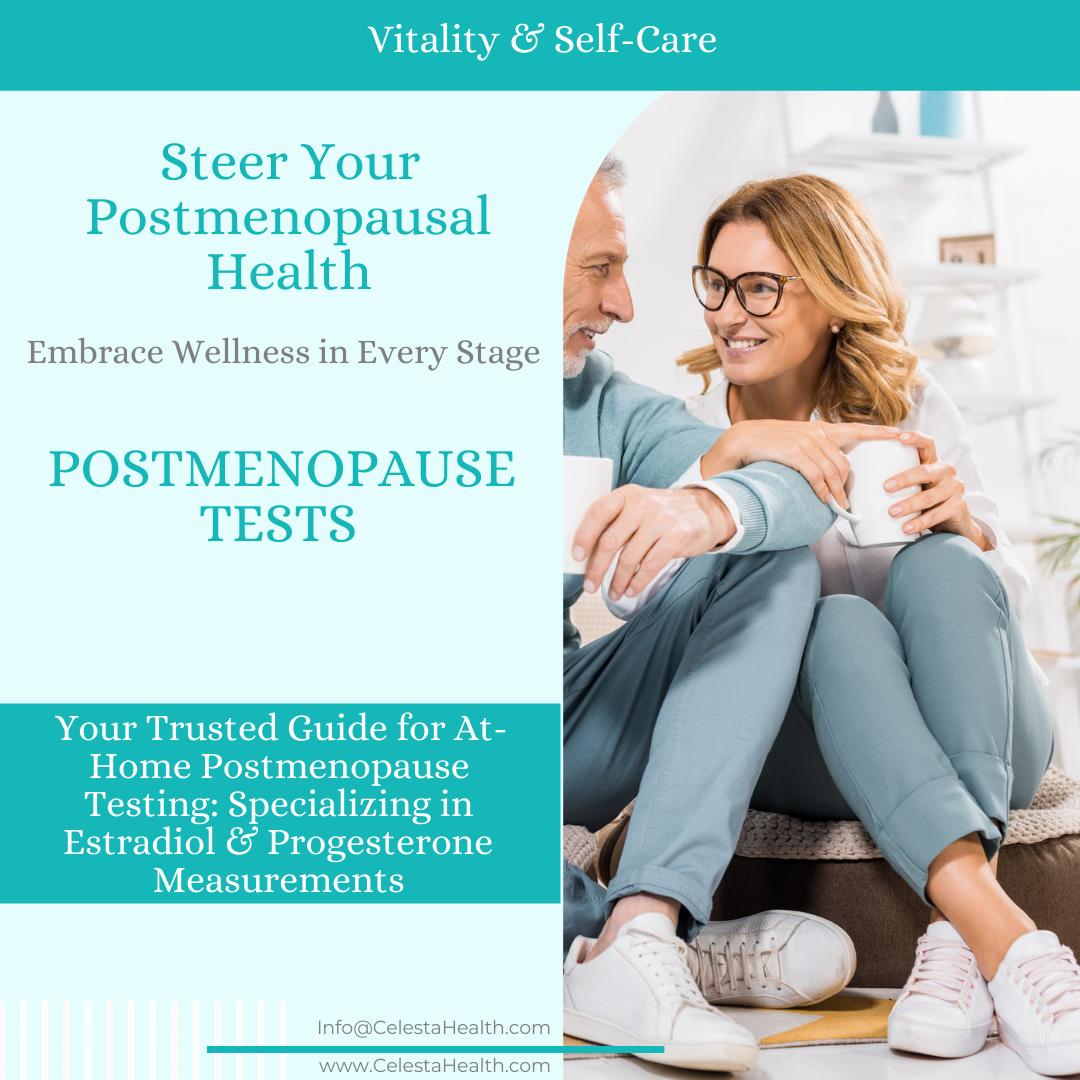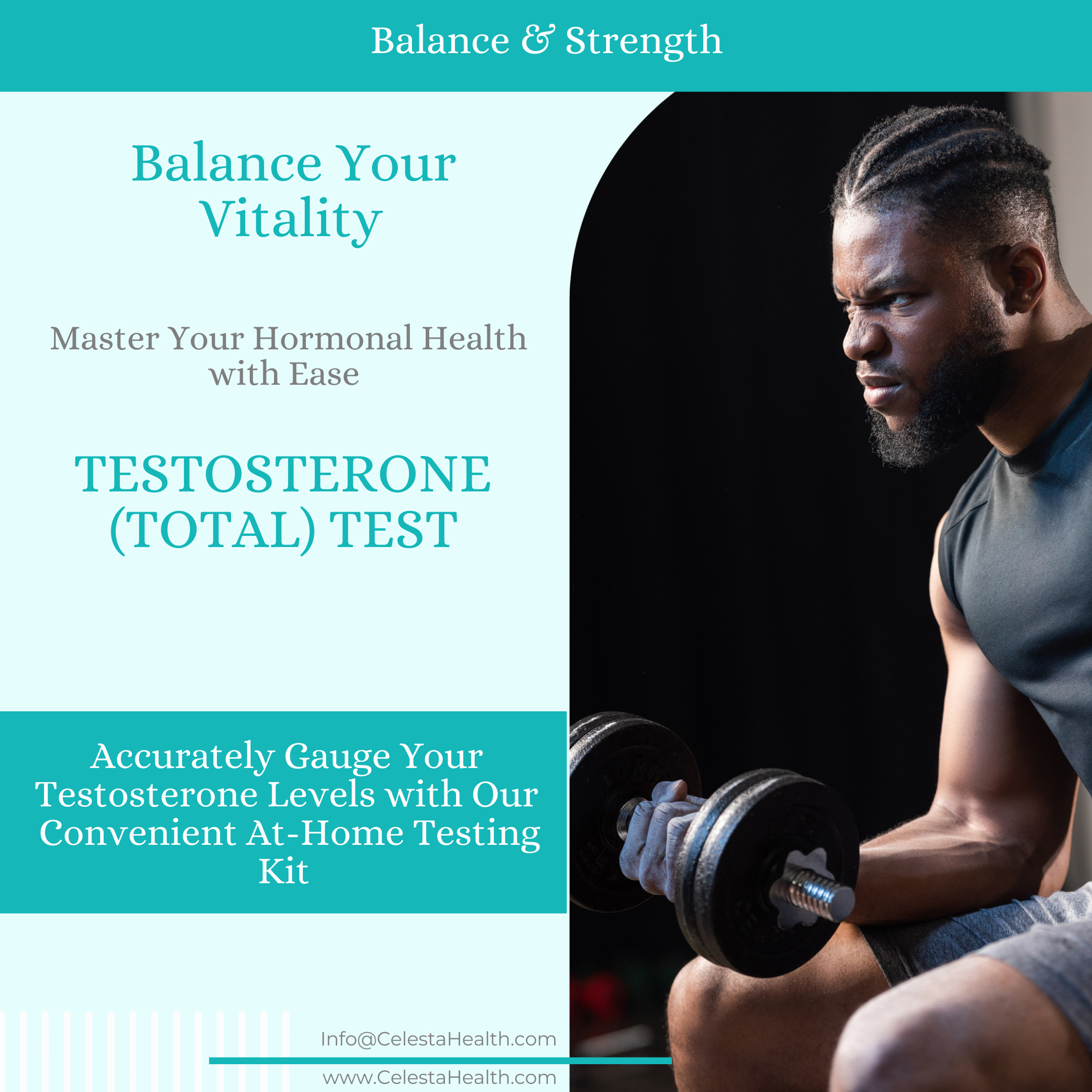Postmenopause Tests
$99.00
Take charge of your postmenopausal health with our convenient at-home Postmenopause Tests. Measure key hormones like estradiol and progesterone to gain valuable insights into your well-being, from bone health to hormonal balance.
Secure Checkout
We encrypt all transactions.
CLIA Certified Lab
We meet & exceed all CLIA standards.
Access to Consultations
Consult with our Board-Certified Physicians.
Access to Coaches & Nutritionists
Award-winning Fitness & Nutrition Coaches.
What's Measured:
Progesterone: Measures progesterone levels, another vital hormone for women that usually drops significantly post-menopause. Progesterone is important for regulating the menstrual cycle and maintaining pregnancy, with levels affecting postmenopausal symptoms.
When to Test:
Bone Health: Monitoring estradiol levels is informative if there are concerns about osteoporosis or other bone density-related issues.
Doctor's Recommendation: Following a healthcare professional's advice to monitor hormone levels due to age, symptoms, or other medical considerations is important.
Special Instructions:
Hormone Replacement Therapy (HRT): Women undergoing HRT with estrogen or progesterone can have altered levels of these hormones, which can impact test results.
Medication Interactions: Certain medications, beyond hormone therapies, can influence hormone levels. These include birth control pills, steroids, and certain psychiatric medications.
Health Conditions: Conditions such as ovarian cysts or certain tumors can produce hormones, affecting the levels of estradiol and progesterone in the body.
Timing of Sample Collection: While less critical in post-menopausal women due to the cessation of menstrual cycles, the timing of sample collection can still play a role, especially if there's any residual cycle irregularity.
Biotin Supplements: If you take supplements containing Biotin (Vitamin B7 or B8, vitamin H, or coenzyme R), wait at least 72 hours after your last dose before collecting your sample to avoid interference with the results.
Symptoms:
Estradiol: Post-menopausal women often experience a natural decline in estradiol levels, which can lead to hot flashes, mood swings, dry skin, vaginal dryness, and changes in bone density. Should tests indicate unusually high levels of estradiol, it could be due to hormone replacement therapy or other medical conditions, necessitating further evaluation.
Progesterone: As the ovaries cease regular function and ovulation in post-menopause, progesterone levels typically drop, potentially causing sleep disturbances, mood changes, and similar hormonal imbalance symptoms. However, elevated progesterone levels are unusual without external hormonal supplementation and might indicate specific medical treatments or health issues.
These hormonal changes can also contribute to broader symptoms like mood swings, sleep disturbances, and cognitive changes, which are common during the post-menopausal phase. Regularly monitoring these hormone levels is key to managing health effectively during this time, as it aids in understanding and addressing individual health needs in consultation with a healthcare provider.




